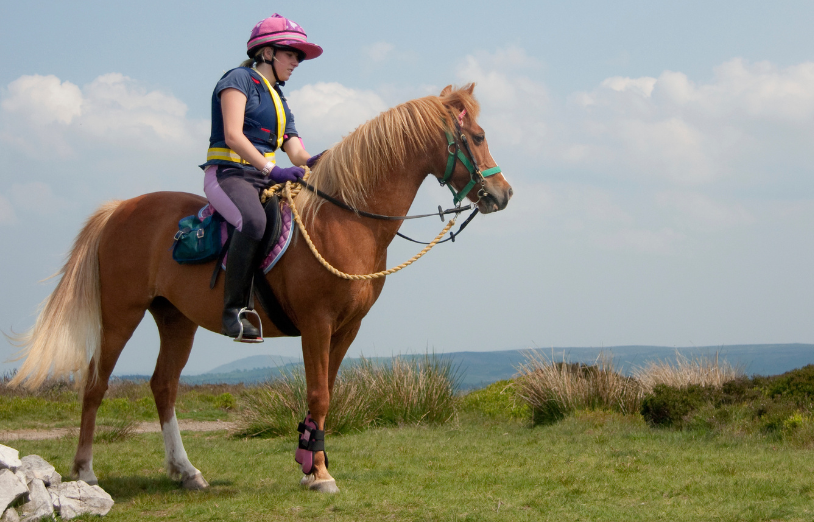
Ad-Lib vs Trickle Feeding - What's Best For Your Horse?
Equestrian Advice & Guides Beginners Advice
Build your business profile for FREE and expose your services to thousands of potential clients!
Create my profile now!
In a proactive move to bolster community policing in the rural areas of Dorset, the local police have unveiled a new and innovative weapon – volunteers on horseback. These Rural Mounted Volunteers are set to play a crucial role in gathering essential information, increasing community engagement, and providing an additional layer of intelligence to the Dorset Police. While they may not have the power of arrest or detainment, they bring invaluable horse-riding expertise and extensive local knowledge to the table, making them a unique and valuable asset in the fight against rural crime. In this article, we'll explore the emergence of the Rural Mounted Volunteers in the UK and the impact they are having in Dorset.
Dorset Police: Finnbarr Webster
Dorset Police's Rural Mounted Volunteers are not your typical law enforcement officers. They are local residents who possess years of experience in horse-riding and a deep understanding of the intricacies of rural life. Their role is to patrol the countryside, engaging with members of the community during their regular hacks along bridleways, lanes, and country roads. While out on their equestrian outings, these volunteers are encouraged to talk to people, listen to their concerns, and foster a sense of community cohesion.
These volunteers also play a vital role in gathering critical information and reporting anything suspicious to the Dorset Police. Their unique perspective and local knowledge allow them to identify unusual activities or persons who might escape the attention of traditional law enforcement officers. This information is a valuable piece of the puzzle in solving and preventing rural crimes.
While the Rural Mounted Volunteers may not have the powers of arrest or detainment, they are not simply amateurs thrown into the field. They have received comprehensive training to equip them for their role. This training includes an understanding of what the Rural Crime Team is currently doing, first aid training, and de-escalation training. The first aid and de-escalation training are particularly crucial, as they enable the volunteers to respond effectively in emergency situations and diffuse potentially volatile encounters.
David Sidwick, the Dorset Police and Crime Commissioner (PCC), has been a staunch supporter of this initiative. His backing has played a significant role in securing the funding for the program and ensuring that the volunteers receive the necessary training and resources to carry out their duties effectively.
Dorset Police: Finnbarr Webster
The Rural Mounted Volunteers program is not only about crime prevention but also about building trust and strong community relationships. In rural areas, law enforcement can sometimes seem distant or detached from the daily lives of residents. The presence of volunteers on horseback helps bridge this gap, making the police more accessible and approachable. The volunteers are often seen as community members rather than authority figures, which encourages people to share information and concerns more readily.
The trust and rapport built between the volunteers and the local community can lead to a more collaborative and efficient approach to tackling rural crime. It fosters a sense of shared responsibility in keeping the countryside safe, and it empowers the community to take an active role in their own security.
The introduction of Rural Mounted Volunteers in Dorset is a testament to the innovation and adaptability of modern policing. While the traditional police force remains essential, initiatives like this provide a unique and effective means of combating rural crime. The volunteers' horse-riding experience and local knowledge, coupled with their comprehensive training, enable them to serve as a valuable resource for the Dorset Police.
This program is a shining example of community-oriented policing, emphasising engagement, trust-building, and the power of local knowledge. The support of the Dorset Police and Crime Commissioner, David Sidwick, in funding and championing this initiative reflects the commitment of the local government to ensuring the safety and well-being of rural communities. As the success of the Rural Mounted Volunteers program continues to grow, it may serve as a model for other rural areas in the UK seeking to address similar challenges.

